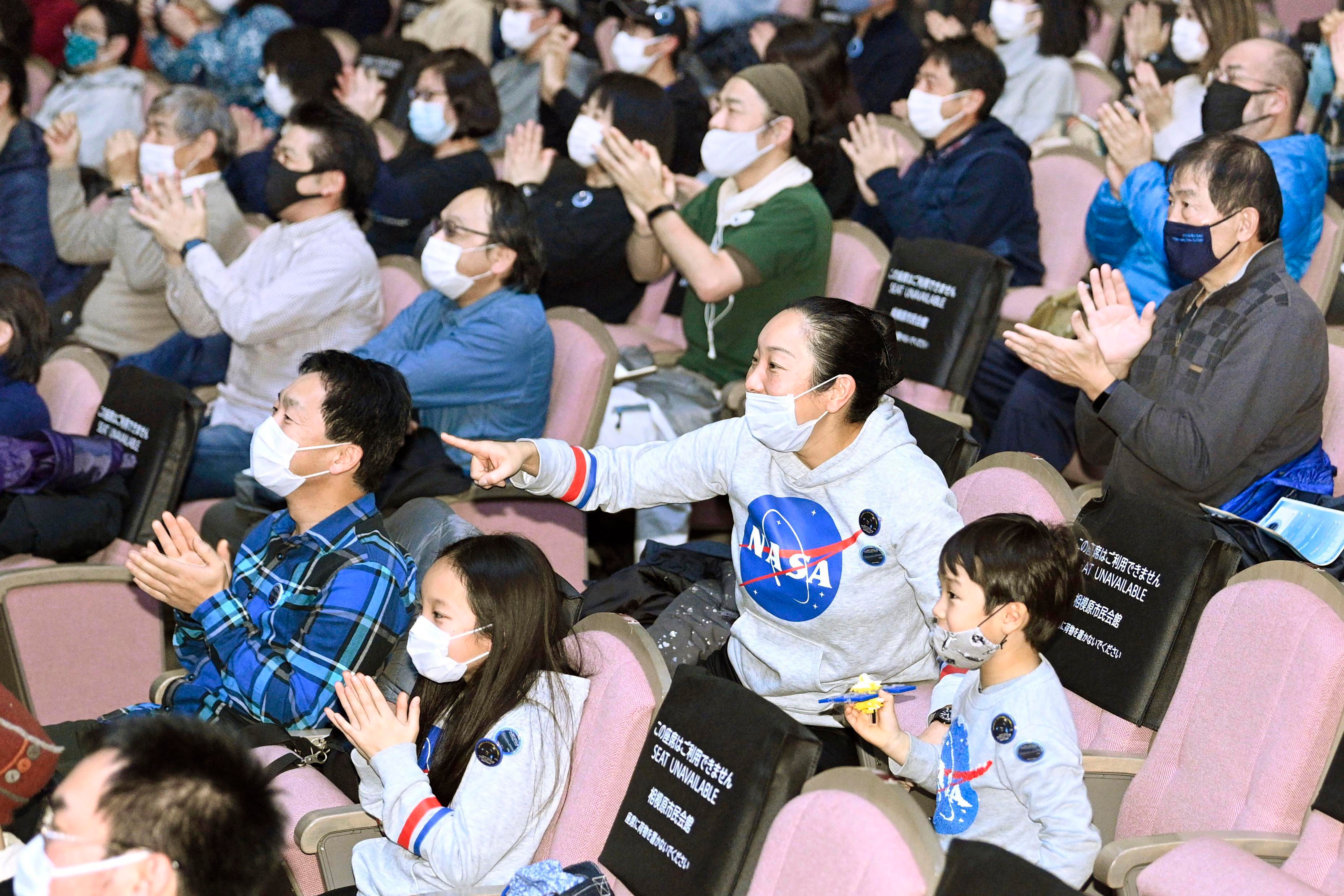Capsule with asteroid samples arrives in Japan for research
The Japanese space agency says a small capsule containing asteroid soil samples that was dropped from space by the Hayabusa2 spacecraft has returned to Japan for research into the origin of the solar system

Your support helps us to tell the story
From reproductive rights to climate change to Big Tech, The Independent is on the ground when the story is developing. Whether it's investigating the financials of Elon Musk's pro-Trump PAC or producing our latest documentary, 'The A Word', which shines a light on the American women fighting for reproductive rights, we know how important it is to parse out the facts from the messaging.
At such a critical moment in US history, we need reporters on the ground. Your donation allows us to keep sending journalists to speak to both sides of the story.
The Independent is trusted by Americans across the entire political spectrum. And unlike many other quality news outlets, we choose not to lock Americans out of our reporting and analysis with paywalls. We believe quality journalism should be available to everyone, paid for by those who can afford it.
Your support makes all the difference.A small capsule containing asteroid soil samples that was dropped from space by Japan s Hayabusa2 spacecraft and landed in the Australian Outback arrived Tuesday in Tokyo for research into the origin of the solar system and life on Earth.
The Japan Aerospace Exploration Agency said its capsule, tightly sealed and carefully stored in a container box, arrived in Japan on a flight from Australia, attended by a group of JAXA officials.
At the end of its yearlong journey from asteroid Ryugu, more than 300 million kilometers (190 million miles) from Earth, Hayabusa2 released the capsule Saturday from 220,000 kilometers (136,700 miles) in space, successfully sending it to land on a targeted area in a sparsely populated desert in Woomera.
The extremely high precision work at the end of Hayabusa2's six-year mission thrilled many Japanese.
The box with the capsule inside is now being transported to JAXA's research facility in Sagamihara, near Tokyo, for analysis.
Launched in December 2014, the unmanned Hayabusa2 spacecraft touched down twice last year on the asteroid Ryugu. Despite an unexpectedly rocky surface that even forced the mission's team to revise landing plans, the spacecraft successfully collected data and soil samples from two locations — on the surface and from underground.
Scientists say the samples, especially ones taken from under the asteroid's surface, contain data from 4.6 billion years ago unaffected by pace radiation and other environmental factors. They are particularly interested in studying organic materials in the samples to learn about how they were distributed in the solar system and if or how they are related to life on Earth.
The samples will be treated in a clean room at the Sagamihara facility to avoid any external impact, and the work is expected to start soon. After initial studies and curation in Japan, some of the samples will be shared with NASA and other international scientists for further study.
___
Follow Mari Yamaguchi on Twitter at https://www.twitter.com/mariyamaguchi